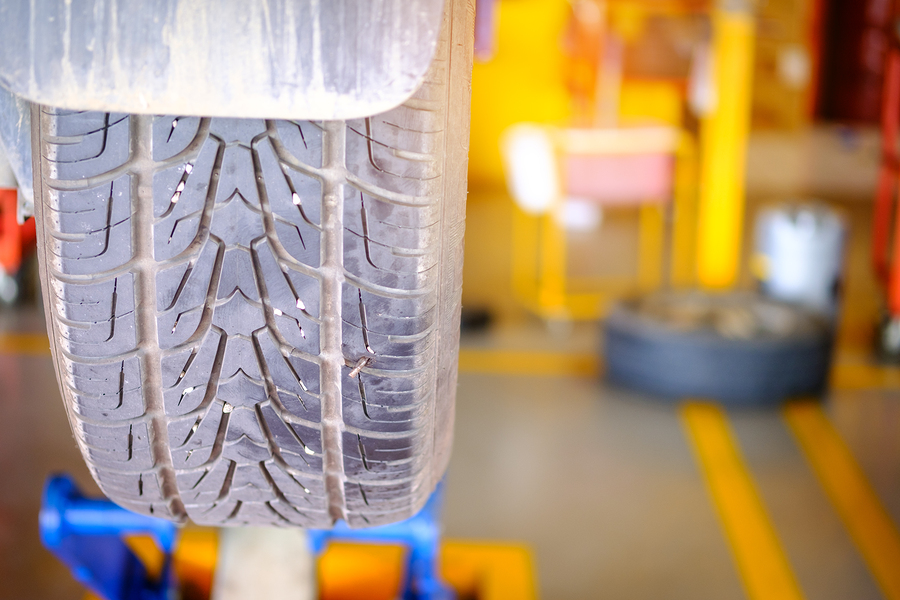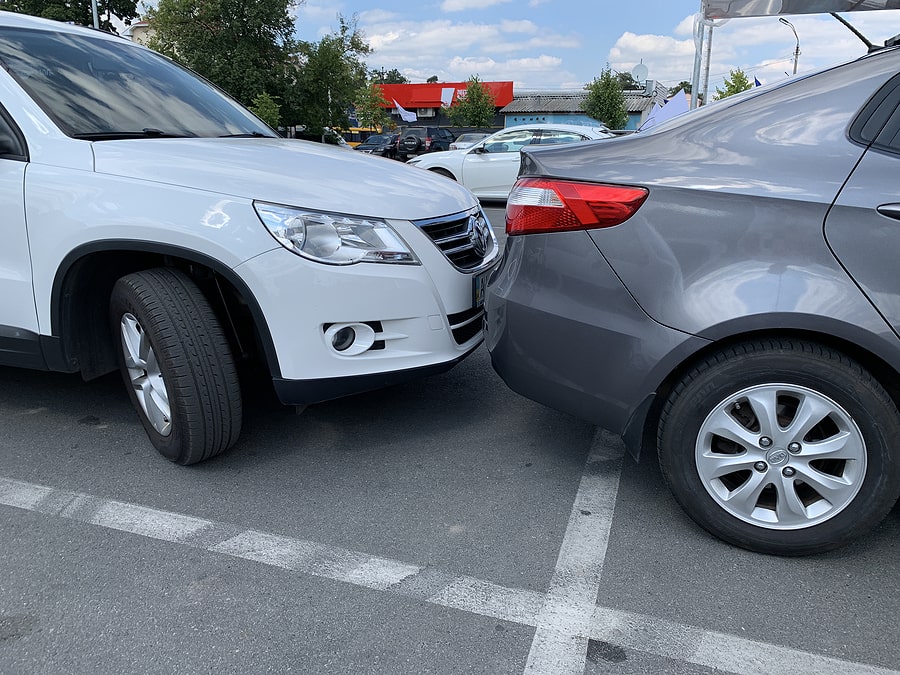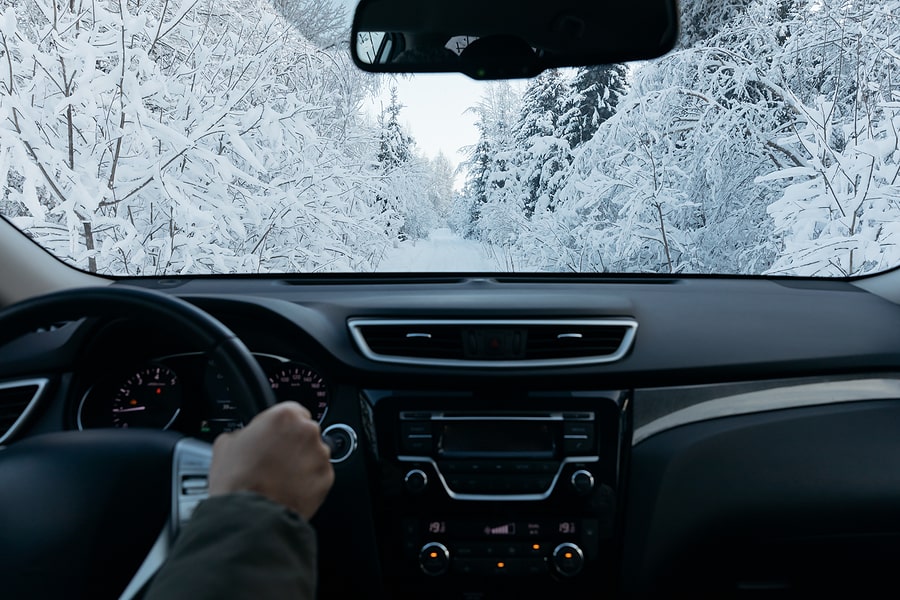Six Causes, Seven Preventative Steps, and Five Actions You Should Take Afterward
Like many other dangerous types of car accidents, tire blowout accidents can occur in the blink of an eye. One minute, your vehicle may be traveling safely and relatively smooth down the road. Next, the tire blows out, causing the car to quickly spin out of control. Tire blowout accidents caused more than 730 fatalities on United States roadways in 2017 alone. Tire-related accidents could cause as many as 9 percent of the accidents on U.S. roadways.
What Are Tire Blowout Accidents?
Tire blowout accidents occur when a tire takes so much damage that it “blows out” or loses all of its air at once. Immediately, the vehicle goes from being easy to handle to being difficult to control. Some drivers may immediately slam on the brakes making it difficult for other drivers behind them to stop in time. Others may over-correct or jerk the wheel when they hear the explosion noise caused by the blowout. A blown tire makes a vehicle impossible to operate safely. In some cases, drivers may struggle to even move the vehicle safely to the side of the road following an accident. Without the fast installation of a spare tire, even vehicles not involved in accidents after a tire blowout may require towing to get them to a safe location.
What Causes Tire Blowouts?
Tire blowouts can happen in the blink of an eye. Often, drivers have little to no warning about a blowout. The tire may go from safely transporting the vehicle’s occupants to flat in an instant, often with a loud bang that can prove incredibly distracting for everyone on the road. Tire blowouts can occur due to a variety of factors.
- Potholes. Oftentimes when cars hit a pothole, the tires take a beating.. Large potholes can have sharp edges that cause punctures in tires. Potholes may also cause rapid changes in the pressure on the tire itself as a car moves across them, increasing the risk of a blowout.
- Under inflated tires. Under inflated tires, or those that do not have enough air according to the manufacturer’s recommendations, have a higher risk of blowing out than tires with adequate pressure.
- Excessively loading the car. Normally, you do not put enough pressure on your car to cause severe damage to your tires. Normal passenger weight according to the number of seats in your vehicle, for example, should not cause a problem. On the other hand, if you severely overload your vehicle—transporting excessively heavy objects or overloading the bed of a truck, for example—you may put excessive pressure on your tires, increasing your risk of a blowout.
- Small puncture damage. Over time, small puncture damage can cause air to leak out until your tires become underinflated. Often, you may not notice the difference in pressure or realize that there’s a problem until the lack of pressure leads to a blowout.
- Fast slicing damage to the tire. You may know as soon as you run over something in the road that you have a problem. A large, sharp object can cause substantial damage to your tires in seconds—often with no chance of avoiding it, depending on the flow of traffic and when you notice the hazard in the road. You cannot repair slicing damage to your tire.
- Manufacturer’s defect. In some cases, tire manufacturers may put out a defective product that severely increases the risk of blowouts. In these cases, tires may have too-thin walls or poor bonding between the rubber and the steel cord or internal fabric that reinforce the structure of the tire.
How Can You Avoid Tire Blowouts?
Today’s tires have more structural integrity and reliability than ever before. While this does decrease the risk of tire blowouts, it does not prevent them entirely. If you want to keep yourself and your passengers safe by decreasing the potential for tire blowout accidents, follow some of the following key steps.
- Check your tire pressure regularly. Check your owner’s manual for the manufacturer’s recommended tire pressure, and keep your tires inflated to that level. Keep in mind that decreasing the tire pressure will increase, rather than decrease, the risk of accidents.
- Replace your tires when needed. Learn how to check your tires for excess signs of wear and tear. A single tire that becomes more worn than the other tires on your vehicle should suggest an alignment problem and might indicate that you need to rotate your tires more frequently. When checking your tires, try the penny test: Insert a penny with Lincoln’s head facing down into the tread of the tire. If you can see the top of Lincoln’s head, you need to replace your tires. New tires have a much lower risk of a blowout than old, worn tires that are nearing the end of their usable life.
- Look for problems with your tire. Have you noticed the need to inflate your tires more often? Check to make sure you don’t have a small puncture causing problems. Many shops that sell tires will offer patches or other repairs when possible.
- Drive safely. If a blowout does occur, you want to respond quickly and effectively. Driving distracted can prevent you from reacting appropriately if you do face an accident. Try to keep your attention on the road at all times.
- Avoid road hazards. If you see something in the road in front of you, try to avoid running over it. Running over an object in the road can cause fast puncture damage to your vehicle.
- Slow down as you go over potholes. When you need to rush to reach your destination, you may find yourself speeding over potholes instead of slowing down to protect your vehicle. Unfortunately, this can cause an abrupt change of air pressure within your tire, which can then lead to a blowout. Instead, leave with a little extra time so that you have time to ease your vehicle around potholes. If possible, take an alternate route with better-maintained roads to reach your destination.
- Don’t slam on your brakes if your tire blows out. You may have lost traction, but you don’t need to drop all of your momentum yet. Instead, steer your vehicle carefully toward the side of the road, and slow down carefully. Slamming on your brakes could cause your car to fishtail or spin, leaving you in more dire straits than before.
What Happens After a Tire Blowout Accident?
A tire blowout accident often leaves you on an adrenaline high, even if you didn’t suffer any significant injuries. The loud bang, the unexpected struggle to control your vehicle, and the resulting damage to your car and others’ can leave you feeling shaky and uncertain. What comes next? Here are the FIVE STEPS you should take.
1. Do Not Leave the Scene of the Accident
Whether your vehicle caused the accident or a blowout to another driver’s tire caused the accident, you should remain at the scene, unless you need to leave to protect yourself or to seek medical attention. Otherwise, wait for the police to arrive. You can also summon an ambulance to the scene of the accident to provide medical attention if needed. Once the police officer arrives at the scene, he will write up a report that will help identify the cause of the accident.
2. Seek Medical Attention
Following an accident of any type, medical attention remains the first priority. Keep in mind that many injuries, including spinal cord damage and traumatic brain injury, may not show up immediately at the scene of the accident, especially if you still have adrenaline and endorphins coursing through your body. Seek medical attention as soon as possible to avoid making any injuries worse.
3. Contact Your Insurance Company
If your tire blew out and caused significant accident damage, you should contact your insurance company to notify them about the accident as soon as possible. Your insurance company will let you know what they cover: if you have full coverage insurance, this may include non-tire related damage to your vehicle, while if you only carry liability insurance, your insurance company may only cover damage to the other party’s vehicle. If the other driver’s tire blew, causing an accident, contacting your insurance company can help streamline the process. Often, if you have full coverage insurance, your insurance company will pay out for damage to your vehicle immediately, then seek restitution from the other driver—which can get you back behind the wheel sooner.
Keep in mind that the insurance company will not accept responsibility for a tire blowout alone. Even if you carry full coverage insurance, if a single tire blows out, the insurance company probably will not simply replace that tire for you. If you total your car in an accident after the tire blows, the insurance company might replace the entire vehicle—including tires for the new one—but the insurance company likely will not provide coverage for a tire blowout that does not result in an accident.
4. Evaluate the Tire
In some cases, a tire may blow out so suddenly and so violently that you can recover only pieces of the tire. In other cases, however, you may reconstruct the tire to get a better idea of why it blew out. While the cause of the blowout does not change the accident, it can impact who bears responsibility for the accident. Consider the following:
- Did a large road hazard cause the accident? In some cases, construction crews may leave equipment behind that causes the damage to the tire. If you can determine who left that item in the road, you may seek compensation from the individual that caused those damages. If a pothole caused the accident, in some cases, you may seek compensation from the city or entity responsible for maintaining the road.
- Did the tire wear out over time? A driver who chooses to drive on old, worn tires bears responsibility for any accidents caused by those worn tires. A driver who allows a puncture to create a slow leak that interferes with air pressure in the tires may also bear responsibility. These need not be acts of deliberate malice on the part of the driver with the blown-out tire; rather, regardless of intent, the driver’s tire failure caused the accident and, therefore, that driver bears liability.
- Did the tire have a manufacturer’s defect? Manufacturer’s defects can cause a brand new tire to blow out for seemingly no reason at all. Unfortunately, these defects can prove difficult to identify, especially if you ended up with a single defective tire in a run of otherwise good items. Repeated blowouts from a specific tire brand or a tire that has no reason to blow out, however, could indicate a manufacturer’s defect in the tire. In the case of a manufacturer’s defect, the manufacturer bears responsibility for the accident.
- Did the driver overload the vehicle? Many drivers fail to realize the limit to the amount of weight their vehicle can carry without putting too much pressure on the tires. If the driver significantly overloaded the vehicle with too much weight, especially weight centered around the tire that blew out, this could leave the driver bearing responsibility for the accident.
5. Get in Touch With a Lawyer
When you suffer serious injuries in a tire blowout accident, working with an experienced car accident attorney can help you maximize your compensation as well as provide peace of mind throughout the entire experience. Ideally, you want to contact an attorney as soon as possible after the accident. Your attorney can provide valuable advice about what compensation you should expect, help seek witness statements and other evidence concerning the accident, and even provide expert witnesses who can help determine the cause of the accident.
Understanding the potential causes of tire blowouts and how to conduct yourself after a serious accident can help you better prepare for the possibility that you will suffer a tire blowout. This will reduce the likelihood that you or your passengers will suffer serious injuries due to an unexpected tire blowout. If you have already suffered serious injuries due to a tire blowout, contacting a lawyer can help you better decide how to proceed.







